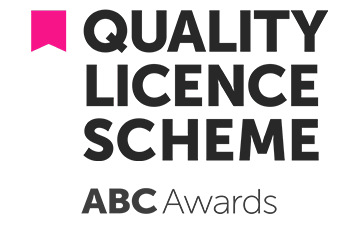

This is a comprehensive course on all aspects of weight management and weight loss. It looks primarily at the science and physiology of weight loss and the evolutionary biology of humans in relation to diet and nutrition - gene optimisation is a key factor in weight control. It also looks at lifestyle factors such as stress management and exercise, which affect our ability to lose weight.
Lesson 1: Introduction to weight management
By the end of lesson 1, you should be able to:
Describe our weight loss philosophy
Understand why diets don’t work
Describe the constituents of a diet and understand why they are our life support system
Explain what the priorities are in the human diet
Describe the best way to cut calories
Lesson 2: How our body processes the food we eat
By the end of lesson 2, you should be able to:
Understand how our bodies process the food we eat
Distinguish between different types of thirst
Describe hunger
Understand the need for nutrient dense foods
Explain why insulin is referred to as the ‘fat hormone’
Describe food intolerance
Lesson 3: Food infections and diets
By the end of lesson 3, you should be able to:
Describe the problems associated with intestinal parasites, Candida, hypoglycaemia, alcohol, free radicals and oxidative damage
Explain why diets don’t work
Understand why diet is important in the context of human evolution
Lesson 4: The secret of weight control
By the end of lesson 4, you should be able to:
Understand the secrets of weight control
What role carbohydrates play in weight control
How to rebalance the body
Describe a low carb cave-man style diet
Design a weight loss diet
Lesson 5: The importance of exercise in weight loss
By the end of lesson 5, you should be able to:
Describe the benefits of exercise
Understand some of the psychological issues that can affect our ability to maintain a healthy weight
Lesson 6: A guide to running your practice
By the end of lesson 6, you should be able to:
Describe the 10 steps to assessing and treating your clients
Lesson 7: Running weight loss retreats
By the end of lesson 7, you should be able to:
Describe how to put together your own plan for running a weight loss retreat
Lesson 8: Obesity and weight management and the health hazards associated with obesity
By the end of lesson 8, you should be able to:
Discuss the scientific studies on obesity and weight management related to aetiology and the natural history of obesity and the health hazards associated with obesity in adults.
Lesson 9: Obesity therapy in adults and healthy eating plans
By the end of lesson 9, you should be able to:
Discuss the scientific studies related to obesity therapy in adults and healthy eating plans.
Lesson 10: Healthy diets and dietary and nutritional assessment
By the end of lesson 10, you should be able to:
Discuss the science referring to the dietary and nutritional assessment in adults as well what constitutes a healthy diet in adults.
Lesson 11: Dietary therapy, types of diet, insulin resistance, dietary fat and carbohydrates
By the end of lesson 11, you should be able to:
Discuss the science related to dietary therapy, types of diet, insulin resistance, dietary fat and carbohydrates as well as activity and exercise in obesity.
Lesson 12: Different types of bariatric surgery and their effectiveness
By the end of lesson 12, you should be able to:
Understand the different types of bariatric surgery and their effectiveness.
At the end of lesson 12 you will also receive some recipe suggestions for your clients and a list of useful addresses and websites.
This course has been accredited by Online Academies. On successful completion of this course you will be able to download or print off a PDF of your Online Academies Certificate (please note: you will also be given the opportunity to have a hard copy of the certificate printed off and posted out to you for a small additional charge). If you would like to view a sample of the certificate, please click here.

Online Academy work with Quality Licence Scheme (Quality Licence Scheme). The Quality Licence Scheme is part of the Skills and Education Group, a charitable organisation that unites education and skills-orientated organisations that share similar values and objectives. With more than 100 years of collective experience, the Skills and Education Group’s strategic partnerships create opportunities to inform, influence and represent the wider education and skills sector.
At the conclusion of each module there is a multiple choice question assessment. This will help you remember the main points of the lesson and act as a check that you have retained the essential knowledge and understanding of that particular section. The results can be seen instantaneously and you can correct wrong answers. When the result is satisfactory you can progress to the next module.
Once you have successfully completed all the modules for your course you will be awarded:
A Diploma issued by Online Academies



